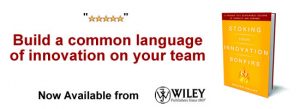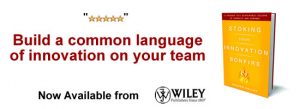Do Ten Things, Do 100 Things

by Kevin Roberts
I wrote a few weeks ago about Do One Thing, the Saatchi & Saatchi S initiative to personalize sustainable actions. Real change requires a ground swell of action, but as companies we can take decisive steps that have impact.
Walmart recently discontinued issuing paper checks to its employees in favor of electronic payments. By that stroke alone it will save some 257,572 pounds of paper a year.
Tesco in the UK has announced that it is now diverting 100% of its waste from landfills. This is no small feat, since it encompasses all of Tesco’s 2300 stores and distribution centers in the UK.
Marks & Spencer has pledged to meet 100 separate commitments to reduce impacts within a five-year time-frame, and has already achieved 39 of those within the first two years.
Here are ten things Ikea did to be more sustainable:
- Replace polyvinylchloride (PVC) in wallpapers, home textiles, shower curtains, lampshades, and furniture – PVC has been eliminated from packaging and is being phased out in electric cables;
- Minimize the use of formaldehyde in its products, including textiles;
- Eliminate acid-curing lacquers;
- Produce a model of chair (OGLA) made from 100% post-consumer plastic waste;
- Introduce a series of air-inflatable furniture products into the product line. Such products reduce the use of raw materials for framing and stuffing and reduce transportation weight and volume to about 15% of that of conventional furniture;
- Reduce the use of chromium for metal surface treatment;
- Limit the use of substances such as cadmium, lead, PCB, PCP, and AZO pigments;
- Use wood from responsibly-managed forests that replant and maintain biological diversity;
- Use only recyclable materials for flat packaging and “pure” (non-mixed) materials for packaging to assist in recycling.
- Introduce rental bicycles with trailers for customers in Denmark.
At Saatchi & Saatchi, we’re setting goals relating to optimal management of our buildings, and doing less traveling. And individually our employees each declare what their DOT is.
There’s an interesting exchange on the post I published a few weeks ago on DOT – a reader claiming that the “incremental steps” model does not achieve transformative change. Adam Werbach responds to this and other views on this, and how he believes the “bottom-of-the-pyramid” actions on the part of the general population have a major effect on decisions made by companies and governments. More on this to come.
 Kevin Roberts is the CEO worldwide of The Lovemarks Company, Saatchi & Saatchi. For more information on Kevin, please go to www.saatchikevin.com. To see this blog at its original source, please go to www.krconnect.blogspot.com.
Kevin Roberts is the CEO worldwide of The Lovemarks Company, Saatchi & Saatchi. For more information on Kevin, please go to www.saatchikevin.com. To see this blog at its original source, please go to www.krconnect.blogspot.com.
NEVER MISS ANOTHER NEWSLETTER!
LATEST BLOGS
The Evil Downside of Gift Cards
This past holiday season I saw probably one too many articles trumpeting the value of gift cards to retailers and how they are a great thing for retailers. My skeptic side starts coming out as I see article after article appear, and I have to start asking “Is the increasing prevalence of gift cards as a holiday gift (primarily Christmas) a good thing for retailers?”
Read MoreWhy the iPhone will not succeed – Yet
The new Apple iPhone is set to launch on June 29, 2007 and the press and investors are making it a darling. Investors have run Apple’s stock price up from about $85 per share before its announcement to $125 per share recently, but the iPhone still will not succeed – at least not yet.
Read More


